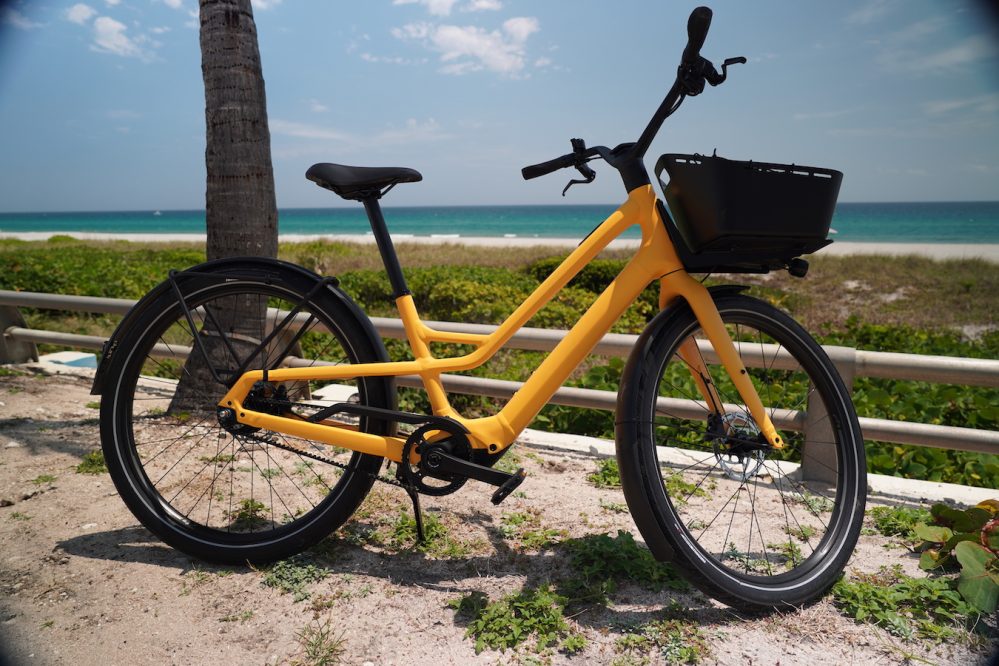
Electric cars may be a popular and growing form of sustainable transportation, but they certainly aren’t the most widespread. As it turns out, two-wheeled EVs in the form of electric bicycles have seen much higher adoptions rates — and for good reason.
E-bikes function similarly to pedal bicycles, yet benefit from an electric assist motor that helps riders travel faster and farther without as much exertion. They can make bike trips shorter, flatten steep hills, and even offer the option of transporting a second passenger on an e-bike.
While they can’t match the speeds or ranges of electric cars, they offer a whole host of other advantages, such as lower cost, quicker urban commutes, and free parking. And thus, it comes as no surprise that electric bicycle sales are soaring ever higher to the point where e-bikes are continuing to massively outsell electric cars around the world.
Even in the US, which is a market for e-bikes that has long lagged behind Europe and Asia, there were over 600,000 e-bikes sold in 2020. That means Americans bought e-bikes at a rate of more than one every minute throughout 2020. E-bikes even outsold electric cars by more than two to one in the US.
Electric bicycles are, of course, more affordable than electric cars, though the latter enjoys a number of state and federal tax incentives in the US to lower their effective costs. Electric bikes don’t receive any federal tax credit, though that could change if legislation currently pending in Congress gets passed.
Electric cars also receive a majority of the attention when it comes to infrastructure investments, federal incentives, and green energy grants. Electric bike companies are generally left to figure it out on their own, with little or no outside assistance.
And yet, e-bike sales in the US have grown wildly over the last few years. The COVID-19 pandemic played a role in the increased adoption rate, but it came at a time when electric bike sales in the US were already headed skyward.

Across the pond, European countries are seeing similar trends.
The United Kingdom Bicycle Association recently reported that 160,000 electric bikes were sold in the UK in 2020. The group noted that with 108,000 electric car sales in the UK during the same period, e-bikes handily outsold larger four-wheeled EVs.
Europe’s electric bike sales are even growing at such a high rate that they are expected to surpass the sales of all cars — not just electric cars — later this decade.
And for many city residents, that day couldn’t come sooner. In addition to providing a more affordable and more efficient form of alternative transportation for riders, e-bikes actually help improve cities for everyone. While e-bike riders can directly benefit from lower transportation costs, quicker commute times, and free parking, more e-bikes on the streets means fewer cars. And fewer cars means less traffic.
E-bikes are widely seen as one of the best ways to reduce urban traffic, especially in cities without effective public transit systems. Even in cities with solid public transit, e-bikes are often more convenient alternatives as they allow riders to commute on their own schedules and without route constraints.
While electric bicycles certainly can’t replace all car trips, the growing number of e-bike styles and the emphasis on e-bike utility mean that a growing number of families are trading a second car for an electric bicycle.

via: Treehugger
Subscribe to Electrek on YouTube for exclusive videos and subscribe to the podcast.
Author: Micah Toll
Source: Electrek



